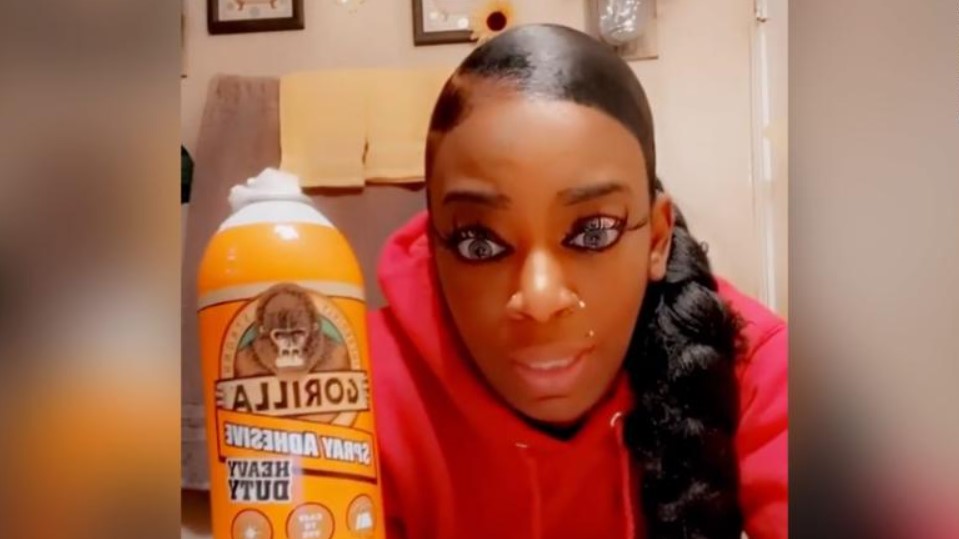A TikToker, Tessica Brown, rose to prominence in a particularly painful way recently by using a Gorilla Glue spray product in her hair. The notoriously powerful glue couldn’t be removed, even after a 22-hour stint in an emergency room where acetone was applied. A Beverly Hills plastic surgeon volunteered a free four-hour surgery that did manage to free Brown’s hair after more than a month of being rock solid. Brown has since publicly stated she does not intend to pursue a liability claim against Gorilla Glue.
The media may have approached this story with levity, but it was no laughing matter to Brown or Gorilla Glue. Even though it seems as if Brown has chosen not to pursue legal action, could she have potentially had a successful product liability case against Gorilla Glue?
Warnings and Liability Protection
Companies that manufacture what could potentially be dangerous products always print warning on the packaging. This particular case could have hinged on the specificity of those warnings. The warning on the Gorilla Glue spray bottle read:
WARNING: EYE & SKIN IRRITANT. MAY PRODUCE ALLERGIC SKIN REACTION. Do not swallow. Do not get in eyes. Do not get on skin or clothing. Do not breath fumes.
An argument could be made that the warning doesn’t say anything about hair, although it’s likely safe to assume any product being used in one’s hair would likely make contact with the scalp.
Companies also have some protection from a legal concept known as “caveat emptor.” It’s essentially a “buyer beware” doctrine – consumers are responsible for buying and using products that are suitable for what they need and are of a proper quality.
If you bought a house for cash just based on the asking price, then find out there are all types of problems on the inside, you might have trouble getting your money back. You didn’t perform any due diligence and the seller didn’t try to hide any information from you – you made a choice and should have known there could have been extensive damage on the interior.
In this case the caveat emptor would essentially be that Gorilla Glue is glue and people are familiar with glue’s purpose. The packaging also says to use it on things like fabric, paper, wood, plastic, cardboard, foam and metal – it never suggests using the spray on the human body or any living thing. Gorilla Glue could have used the defense that people know glue shouldn’t be applied to hair, or they at least can research the topic and figure that out.
There’s also the matter of whether Gorilla Glue could be categorized as unreasonably dangerous. To prove a product is unreasonably dangerous a plaintiff generally needs to make a case that it was manufactured or designed with flaws, or it didn’t come with adequate warnings.
Courts would also need to consider whether the company should have reasonably anticipated a person using Gorilla Glue as a styling product. Manufacturers can and have been successfully sued even when their products were misused in instances where the misuse was predictable.
Brown’s chances at winning compensation might have hinged on whether the use of Gorilla Glue as hairspray could or should have reasonably been anticipated. Her legal team would have benefitted from finding similar cases where other people used Gorilla Glue as a hair styling product.
Finding several other examples would have theoretically strengthened her case that putting Gorilla Glue in a spray can that’s not entirely dissimilar from a can of hair spray should have led the company to reasonably predict its misuse for such a purpose.
Product Liability Cases Aren’t Straightforward or Easy
It’s difficult to predict how product liability cases will go because there are so many factors that might influence a judge or jury’s perception of the case. There are often many variables involved and some subjective interpretation in terms of what could or should have been foreseen or what a purchaser should have known was a potential risk.
The skill of personal injury trial lawyers and the evidence they’re able to uncover often plays a significant role in the outcome of dangerous product cases.
If you believe you have a legitimate product liability case in the Houston area, contact the Weycer Law Firm as soon as possible. Call us at (713) 668-4545 to schedule a free, no-obligation consultation.

